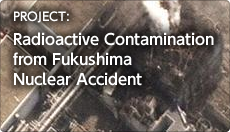
Dec,2009 : Report : on the Activity of ChemiNet
Mar 23, 2012
Report on the Activity of ChemiNet
Report on the Activity of “Network for a Basic Law on Chemicals Policy”(ChemiNet) and the Comprehensive Chemicals Policy in the Manifesto of the Democratic Party of Japan (DPJ)
On June 7, 2008, we, citizens’ groups and NGOs for tackling chemicals issues, established “Network for a Basic Law on Chemicals Policy”(ChemiNet) to review the existing chemicals policy which is vertically divided by each ministry and agency, and demand basic principles and strategies for managing chemical substances and “the Basic Law on Chemicals Policy”(a provisional name) which provides for the integrated and comprehensive management of chemical substances. The following is a report on the activity of ChemiNet over a year and a few months.
Activity of ChemiNet
ChemiNet has conducted mainly three activities:
1.to make easy-to-understand pamphlets;
2.to collect signatures to demand the enactment of a Basic Law on Chemicals Policy;
3.to lobby Diet members and the government.
1. and 2. are aimed at making the public more interested in the current chemicals policy and its problems and their solution. 2. and 3. are aimed at enacting a Basic Law on Chemicals Policy as lawmaker-initiated legislation.
On November 8, 2008, we held a symposium entitled “Everyday Life and Chemical substances” where victims of chemical substances delivered their reports and the participants discussed how to actualize comprehensive chemicals policy.
Signature-Collecting Campaign
On October 31, 2008, we started a signature-collecting campaign and counted the signatures on December 31, 2008, on March 31, 2009 and on May 31, 2009. The number of the signatures as of September 1, 2009 is mentioned below. Although on June 30, 2009, we submitted 30,236 signatures to the speaker of the House of Representatives and 28,731 signatures to the speaker of the House of Councilors via go-between members of the Diet (in view of the dissolution of the House of Representatives, we submitted some of the signatures), the Diet could not finish deliberating the petition due to the dissolution of the House of Representatives on July 21. We will submit the group signatures when the enactment of a Basic Law on Chemicals Policy is on the horizon in the future.
・Total Number of the Signatures(September 1, 2009)
Group Signatures: 1,483
Petition Signatures (Individual Signatures)(Included are the signatures submitted to the Diet on June 30, 2009.)
Signatures submitted to the House of Representatives: about 42,000
Signatures submitted to the House of Councilors: about 39,000
Lobbying Campaign against Diet Members and the Government
As for the lobbying campaign against the government, we just exchanged views on revisions of the existing government and ministerial ordinances associated with the revision of the Act on the Evaluation of Chemical Substances and Regulation of Their Manufacture etc. (CSCL). As for the lobbying campaign against Diet members, we contacted them individually and held seminars on the existing chemicals policy, its problems and its international trends for all the Diet members at their office building.
The first seminar: November 25, 2008
・the present situation of health damage etc. caused by chemical substances (reports on damage from sick house syndrome and chemical substances / problems in synthetic detergents’ labels etc.)
・international trends in chemicals policy
・the direction of the revision of CSCL and its problems
・a Basic Law on Chemicals Policy (a proposed draft)
The second seminar: April 2, 2009
・the outline of the revision of CSCL and its problems
・international trends in chemicals management and CSCL
・safe management of nanomaterial
・announcements about approaches to chemicals management from each political party, discussion about ” the revision of CSCL and a Basic Law on Chemicals Policy”
・the total number of the petition signatures
The third seminar: June30, 2009
・international trends in chemicals policy
・toward the enactment of a comprehensive and basic law on chemical substances
・introduction of the revision of CSCL and Diet deliberations
・discussion
・submission of some of the petition signatures
The DPJ’s Intention of Drafting a Basic Law on Chemicals Policy
In 2008, CSCL was about to be revised, and a Basic Law on Chemicals Policy was supposed to be proposed as lawmaker-initiated counter-legislation. But, in addition to the lack of time to prepare the bill, a Basic Law on Chemicals Policy which provides for basic principles and strategies was legally different in so many ways from CSCL which provides for hazard management that we had to abandon submitting the bill. Although the proposed revision of CSCL had some problems, the revision itself was improvement and could hardly be withdrawn. Therefore, we changed course and sought to at least incorporate the need for the enactment of a Basic Law on Chemicals Policy into the Diet resolution accompanying the bill to revise the CSCL. Some Diet members got to be concerned about chemical issues through their contact with us. Fortunately, (then) DPJ “Next Cabinet” environment minister Tomiko Okazaki and (then) deputy chairman of the DPJ’s Policy Research Council Issei Tajima are especially interested in drafting the lawmaker-initiated legislation. In November 2008, the DPJ launched the Chemicals Policy Project and they were off and running to draft the legislation. Although some members of the Japanese Trade Union Confederation, the DPJ’s largest support organization, did not accept a Basic Law on Chemicals Policy, the DPJ finally decided to draft the law.
The bill to revise the CSCL was deliberated both in the House of Councilors and the House of Representatives, and some Diet members asked questions about problems with CSCL which we had pointed out. Furthermore, “the Diet resolution accompanying the bill to partially revise the Act on the Evaluation of Chemical Substances and Regulation of Their Manufacture etc. (May 12, 2009, the economic and industrial committee of the House of Councilors)” noted that “we should immediately study about comprehensive and integrated legal systems and administrative institutions on chemical substances.” This indicates the need for a Basic Law on Chemicals Policy.
The DPJ’s manifesto
On August 30, 2009, the DPJ won a landslide victory in the general election for the House of Representatives. In the “environment” section of the DPJ’s manifesto, which is related to chemical substances, measures against environmental health hazard, measures to deal with Minamata disease, comprehensive chemicals policy, measures for victims of the Kanemi oil poisoning case, measures against sick house syndrome, measures against health damage caused by insecticide (e.g. chemical sensitivity and acute poisoning), realization of a non-asbestos society, health measures against asbestos, measures against air pollution, countermeasures against soil contamination, comprehensive waste management and recycling measures, and establishment of a recycling system for rare metals from waste high-tech products are included.
In “the Comprehensive Chemicals Policy,” it is said that “we will eliminate vertically divided administrative functions and advance comprehensive chemicals policy, with focus on protecting human life and health. We aim to enact “a Basic Law on Chemicals Policy”(a provisional name) and create integrated legal systems which comprehensively manage chemical substances from their manufacture through to their disposal based on a precautionary approach.” Because a Basic Law on Chemicals Policy is clearly incorporated into the DPJ’s manifesto like this, its enactment seems to gradually become a real possibility.
Future Activity of ChemiNet
A Basic Law on Chemicals Policy provides for basic principles and strategies for chemicals policy, organizations which manage chemical substances in an integrated and comprehensive fashion, and so on. On the other hand, its subordinate laws provide for details of chemical hazard management (e.g. registration of chemical substances, evaluation of hazards etc., and expiration date for use). The latter’s typical example is CSCL, but this law is supervised by the Environment Ministry and is not applied to fields (such as agriculture, buildings, and household insecticide) which the other ministries and agencies have competence over, so this is not a comprehensive law. Therefore, because chemical hazard management also needs to be comprehensively regulated by integrated organizations, we ChemiNet are now studying about “a Chemical Infrastructure Act”(a provisional name) which is subordinate to a Basic Law on Chemicals Policy and the purpose of which is to manage chemical hazards.
Furthermore, we are planning to periodically provide information on practical problems caused by chemical substances and hold seminars on systematic problems related to chemicals management etc. for Diet members.
In October 2009 (T-Watch secretariat)


